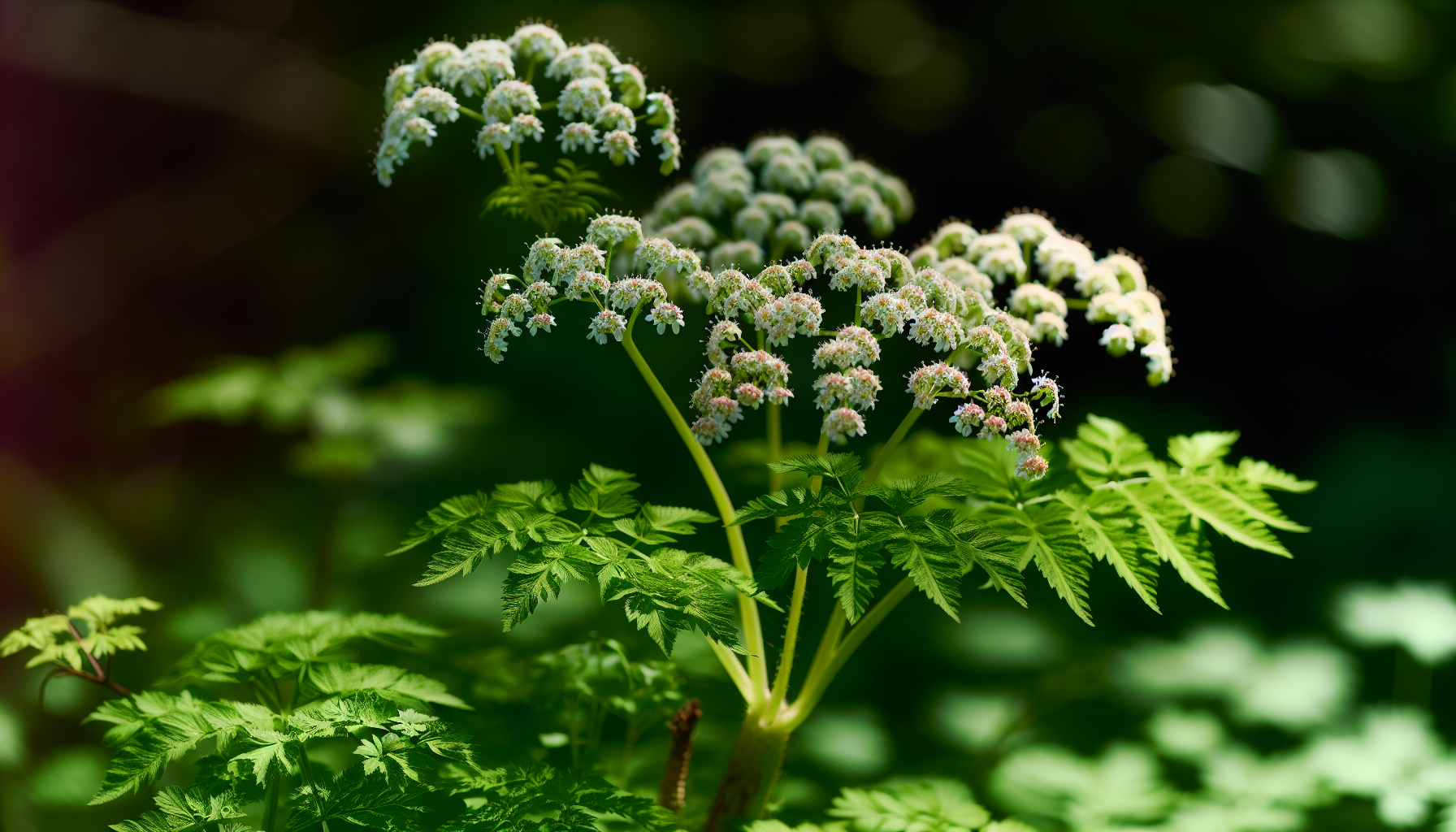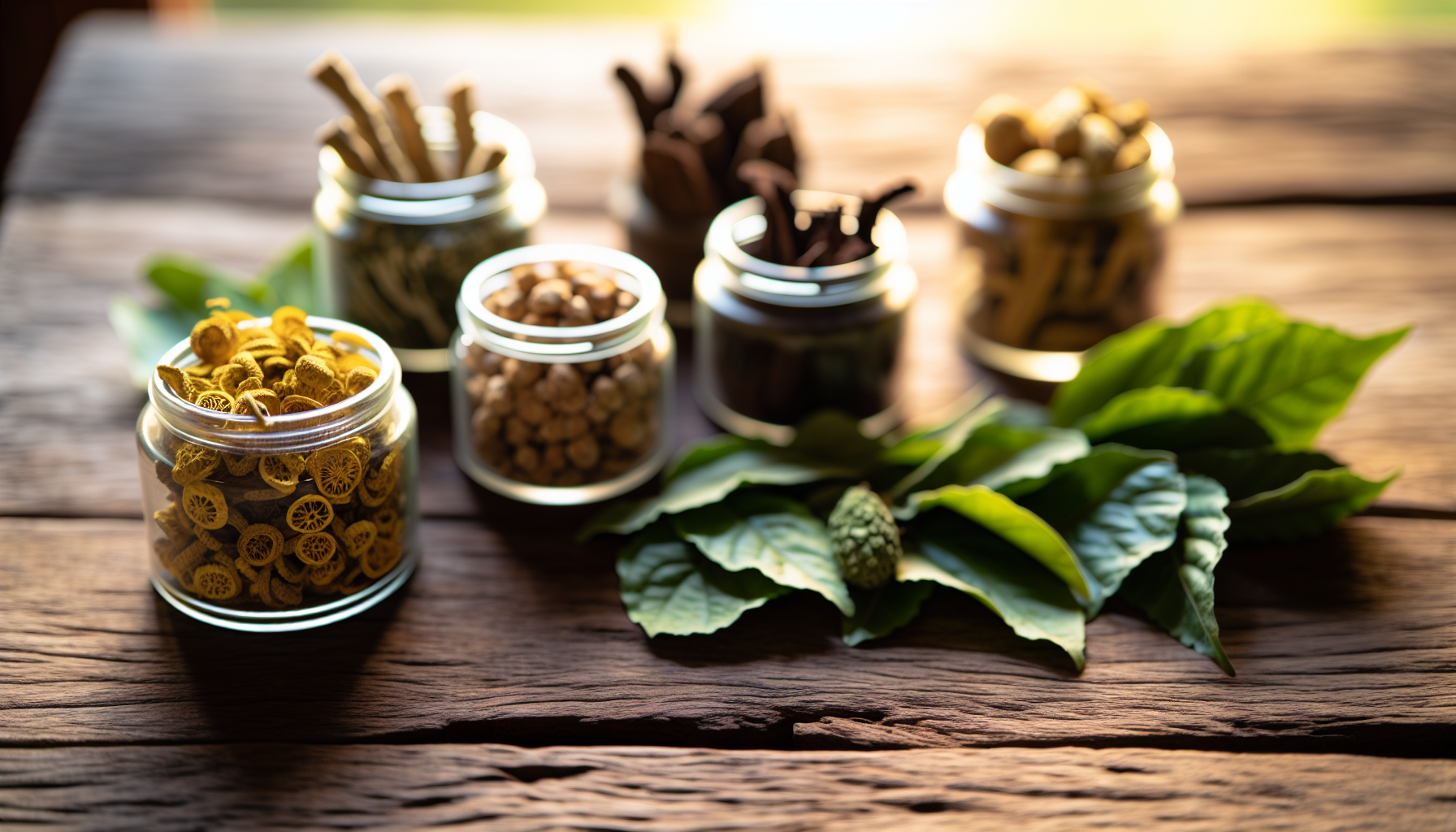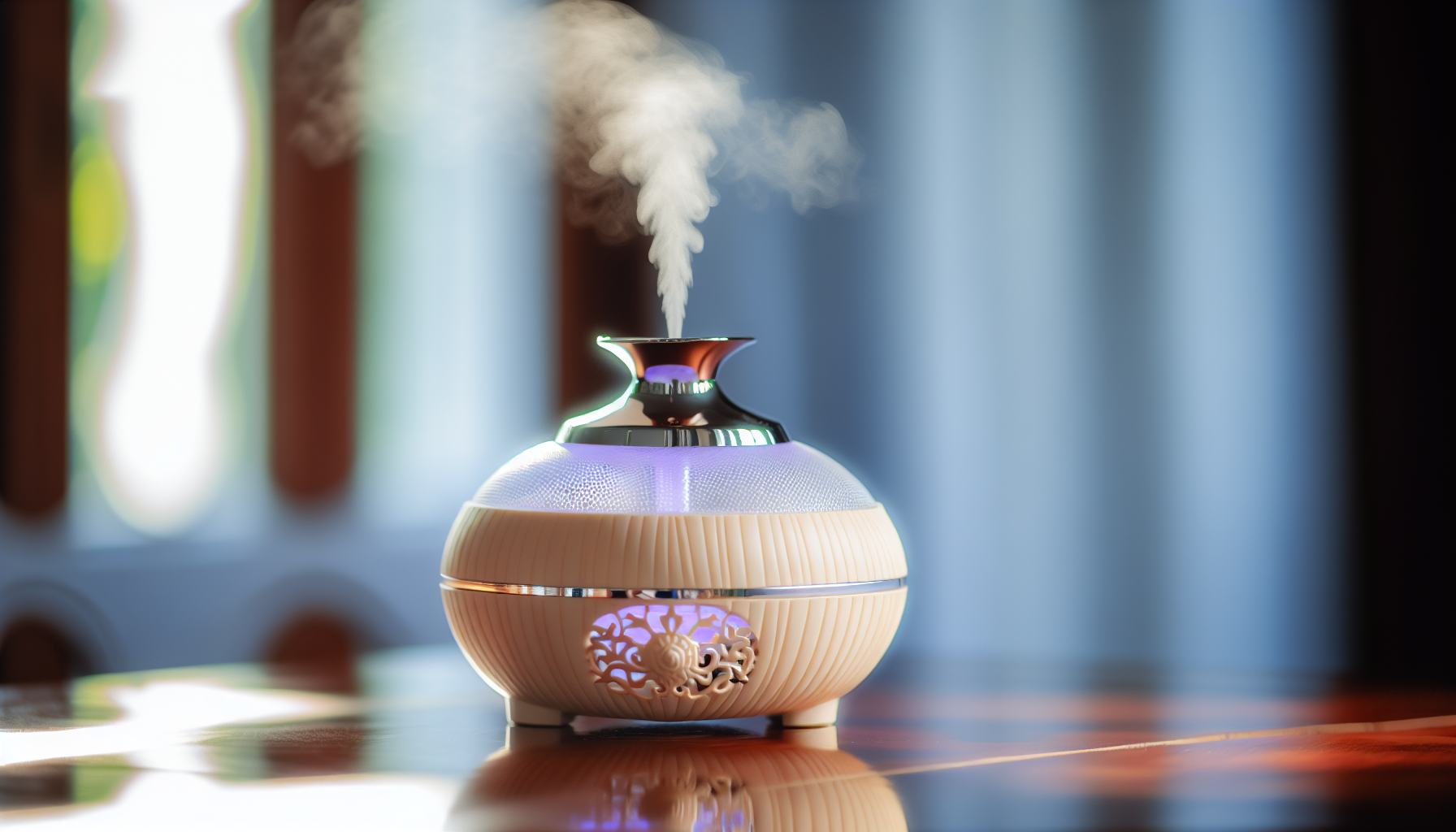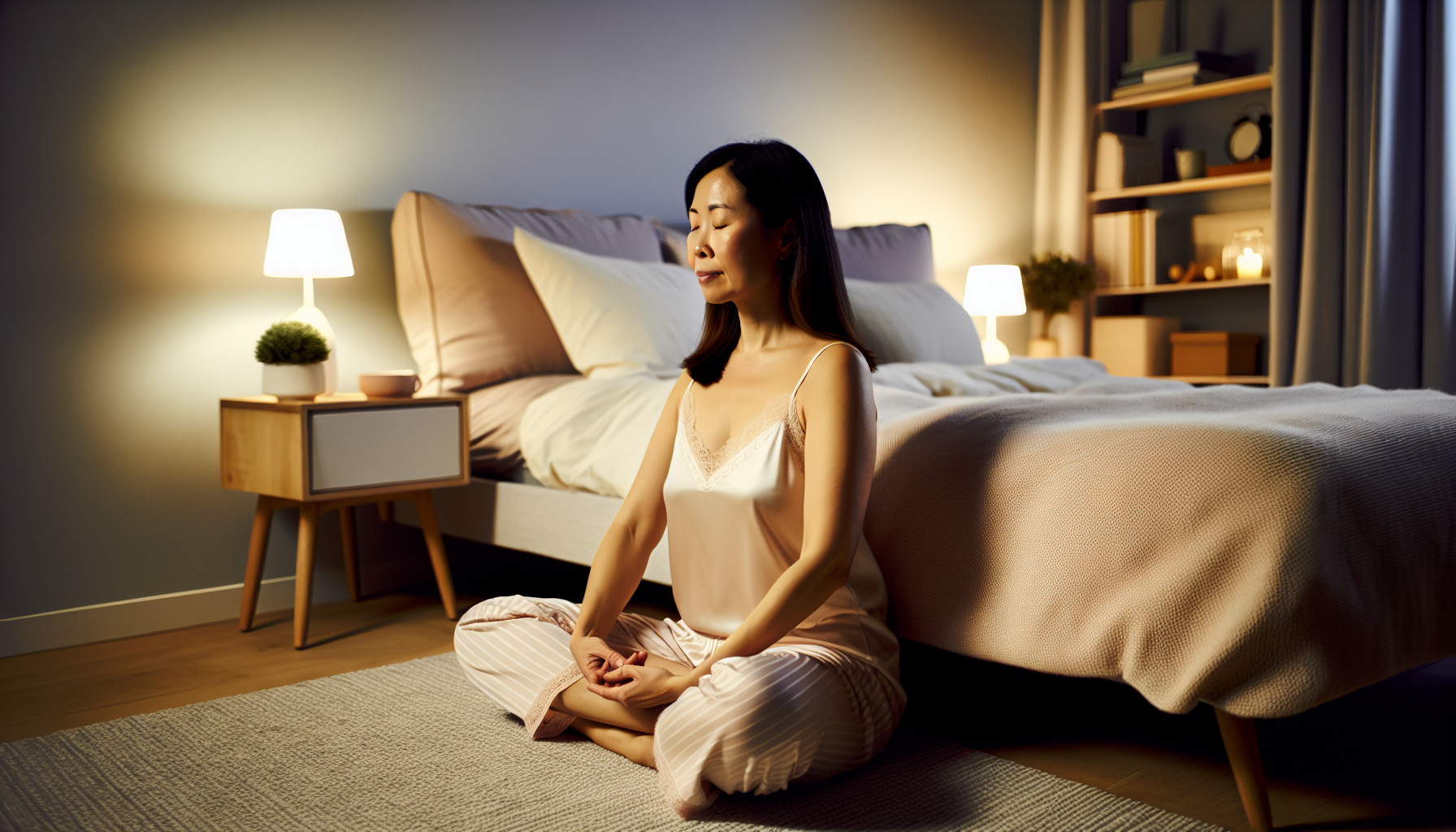Tossing and turning through the night, searching for a natural solution to embrace the land of dreams? You're not alone. The quest for a peaceful night's sleep has many asking, "What is the strongest herb for sleep?" In a world where the glow of screens and the buzz of the ever-present to-do list invade our bedrooms, finding a gentle yet effective way to close our eyes and drift away is more important than ever. This comprehensive guide illuminates the path to reclaiming restful sleep through the power of herbal medicine, with Valerian Root taking center stage as a hero among natural sleep aids. As we delve into the botanical world, we'll uncover the potent effects of various herbs trusted by generations and validated by science to enhance sleep quality and soothe the nervous system.
Beyond the celebrated Valerian Root, our exploration will extend to a cadre of herbal allies, including Ashwagandha, Magnolia Bark, Holy Basil, and more—each with its unique ability to promote relaxation, reduce anxiety, and induce sleep. We’ll navigate through the calming effects of teas, the convenience of tinctures, and the targeted support of capsules, offering insights into how these natural remedies can integrate into your nightly routine for optimal health. Through the lens of high-quality research and clinical trials, we’ll also touch upon the importance of sleep hygiene, the impact of lifestyle habits on sleep duration, and how combining certain herbs, like Lemon Balm with Chamomile, can amplify the soothing effects of even deeper sleep. Whether you're struggling with sleep latency, wrestling with anxiety disorders, or aiming for more high-quality sleep, this article guides you to the most effective herbal supplements, shedding light on navigating sleep aids safely and effectively for a good night's sleep. Join us on this enlightening journey to better sleep, armed with the knowledge to make informed choices about natural sleep aids that could transform your nights and energize your days.
Key Takeaways
- Valerian root is regarded as a highly effective natural sleep aid, enhancing sleep quality through sedative compounds that increase GABA levels, with the best results observed from high-quality supplements taken consistently over time.
- A variety of herbs, including Ashwagandha, Magnolia Bark, Holy Basil, Passion Flower, California poppy, and Hops, have been identified for their sleep-inducing and anxiety-reducing properties, which can be harnessed in different forms such as teas, tinctures, and capsules.
- Combining certain herbs, such as Valerian with Hops or Lemon Balm with Chamomile, could enhance the sedative effects and improve sleep quality. Still, precautions should be taken as herbal supplements can interact with medications and are not suitable for everyone.
Valerian Root: The Heavyweight Champion of Herbal Sleep Aids

Long before the advent of modern sleep aids, our ancestors relied on the wisdom of nature to remedy sleep disturbances. Valerian root, a medicinal herb with a history spanning over 60,000 years, has been a trusted ally. Records of its sleep-enhancing properties date back to ancient Greece and Rome. Particularly beneficial for individuals grappling with sleep disorders like insomnia, Valerian root has carved a niche for itself in the realm of natural sleep aids.
Imagine a sleep aid that lulls you into a deep, restful slumber without the groggy hangover typically associated with over-the-counter sleep aids. That’s Valerian root for you! Valerian root is celebrated for promoting deep, restful sleep. It hastens sleep onset and curtails nocturnal awakenings, preparing you for a bright and energetic new day.
Understanding Valerian's Sedative Compounds
The secret behind Valerian root’s sleep-inducing prowess lies in its unique blend of soothing compounds. One such compound is valerenic acid, part of Valerian’s volatile oil, known for its soothing properties. Valerian’s strength, however, comes from the interaction of multiple constituents, including valerenic acids, sesquiterpenes, and valepotriates. This potent combination enhances sedation by increasing GABA levels in the brain, promoting a sense of calmness and relaxation essential for a good night’s sleep.
However, the effectiveness of Valerian root can vary depending on the levels of these constituents in different preparations. This variability highlights the significance of selecting high-quality Valerian root supplements to fully benefit from its sleep-enhancing capabilities.
Clinical Studies Supporting Valerian's Efficacy
There’s plenty of anecdotal evidence supporting Valerian root’s sleep-enhancing properties, but what does the scientific research suggest? A systematic review and meta-analysis of randomized, placebo-controlled trials found a statistically significant benefit of Valerian for improving sleep quality. This meta-analysis, encompassing 16 studies with 1093 patients, found evidence that Valerian might enhance sleep quality without producing side effects.
However, the picture isn’t entirely rosy. The studies reviewed had diverse doses, preparations, and treatment lengths of Valerian, raising questions about the consistency of the findings. Additionally, evidence suggests the possibility of publication bias that may have overestimated the effect of Valerian on sleep quality. Despite these challenges, the evidence points to the potential of Valerian as a natural remedy for improving sleep quality.
Tips for Using Valerian Root
Embarking on a journey with Valerian root to conquer sleepless nights or manage anxiety can seem daunting, but with the right approach, it can be a smooth sail. Begin by considering the recommended dosage tailored to your needs—whether that's for improving sleep quality or reducing anxiety. Starting with a dosage that aligns with your goals and gradually adjusting as needed while observing the effects is crucial.
Valerian root's versatility in form, from capsules and tablets to teas, makes it accessible for various preferences and routines. Opting for a calming Valerian tea before bedtime can become a comforting ritual, enhancing its sleep-inducing benefits. Keep in mind, though, the importance of moderation. While Valerian root is a powerful ally in your quest for restful sleep and tranquility, it's wise to heed the guidance of a healthcare professional for prolonged use beyond a month to ensure it complements your health regimen safely.
For those among our readers particularly keen on finding the most effective and high-quality Valerian root supplements, we've delved into the vast array of options to bring you “The 2000-Year-Old Tranquilizer: Discover the Best Valerian Root Supplements on the Market.” This article reviews five of the top Valerian root supplements, helping you confidently navigate the myriad choices. Gain insights into each product's unique features and potency and how they stand out in natural sleep aids and anxiety reducers. Check out the link here to explore these top picks and gain knowledge that can lead to better sleep and less anxiety.👇
Other Herbs Known for Their Strong Sleep-Inducing Properties

Though Valerian root might be the reigning champion of herbal sleep aids, it’s not the only player in the game. Nature has bestowed us with many herbs known for their sleep-inducing properties. Take Ashwagandha, for instance, also known as Indian ginseng. Recent studies highlight its sleep-promoting properties, with triethylene glycol from its leaves acting as a sedative and aiding in stress relief and sleep cycle regulation.
Then there’s the Magnolia Bark, known for its neurological benefits due to its ability to regulate neurotransmitters like GABA and serotonin. This regulation leads to relaxation, reduced anxiety, and lower cortisol levels, all of which can contribute to better sleep. Similarly, Holy Basil and St. John’s Wort have both been noted for their ability to alleviate anxiety and stress, common hindrances to quality sleep.
Passion Flower: An Anxiety-Reducing Bloom
Another gem in the crown of herbal sleep aids is the Passionflower. Known for its calming effects on the nervous system, Passionflower can help calm the mind, reduce pain, and beat insomnia. Passionflower extracts have increased total sleep time and slow wave sleep in rats, reducing wakefulness and REM sleep phases.
So, how can you harness the power of Passionflower for better sleep? Here are some tips:
- Drink Passionflower as a tea to expedite sleep onset and lessen anxiety.
- Use it cautiously, and do not take it for longer than two months at a time.
- Be aware that Passionflower may interact with certain medications, so exercise caution, especially if you are an older adult on sedatives or blood thinners.
California Poppy: Nature's Gentle Sedative
Let’s not forget the gentle, soothing properties of the California poppy. It contains alkaloids such as protopine and allocryptopine that contribute to its mild sedative and anxiolytic effects. The calming effects of California poppy on the nervous system may stem from its ability to modulate neurotransmitters, aiding in relaxation and sleep.
The California poppy is most commonly used in a glycerate or tincture form to support sleep. But remember to exercise caution. While California poppy aids sleep, it shouldn’t be combined with sedative drugs as it could amplify their effects.
Hops: More Than Just a Beer Ingredient
Regarding sleep aids, Hops is not just about the beer. This herb possesses strong sedative properties due to the sleep-inducing chemical methyl butanol and other compounds such as the flavonoid xanthohumol and the terpene myrcene. The inhibitory effects of Hops on the nervous system are partially achieved through the modulation of GABA(A) receptors and adenosine receptors, both critical in the sleep-wake cycle.
Consumption of non-alcoholic products containing Hops has been associated with improved sleep quality, decreased sleep latency, and lower levels of anxiety. Hops also influence sleep by affecting serotonin and melatonin neurotransmission, which are crucial for regulating nocturnal sleep and maintaining consistent circadian rhythms.
Combining Herbs for Enhanced Sleep Benefits
While each of these herbs holds its own in the sleep-promoting arena, did you know that combining certain herbs can have synergistic effects? Yes, you read that right! Combining California poppy with other sedative herbs such as Passionflower and Valerian is suggested to promote sound sleep and beneficial REM sleep.
In herbal sleep aids, two combinations stand out for their potential sleep-enhancing synergy: Valerian and Hops and Lemon Balm and Chamomile. Let’s delve deeper into these dynamic duos.
Valerian and Hops: A Dynamic Duo
The combination of Valerian and Hops is like a dream team for sleep. Studies indicate that these two herbs, when used together, enhance each other’s soothing properties. This synergistic effect can improve sleep quality and treat insomnia more effectively.
So, how does this work? The sedative effects of Hops are enhanced when consumed in combination with Valerian, as they act synergistically on the sedative function. This indicates the promising potential of this herbal duo in improving sleep.
Lemon Balm and Chamomile: Soothing Partners
On the other hand, the combination of Chamomile and Lemon Balm can work wonders for your sleep. Chamomile tea is a part of many individuals’ nightly self-care rituals due to its reputation for promoting calmness and improving sleep quality. Lemon Balm, abundant in antioxidants and sesquiterpenes, helps reduce stress levels and significantly improves sleep.
Chamomile, with its calming properties and Lemon Balm, improves overall sleep quality. Whether you consume them in tea or as supplements, this soothing partnership can be a game-changer for your sleep routine.
Natural Remedies Beyond Herbs
Our exploration of natural sleep aids isn’t confined to herbs. There’s a whole world of natural remedies beyond herbs that can help improve your sleep quality. Among these are:
- Melatonin
- 5-HTP
- Tart Cherry Juice
- Ashwagandha
- Reiki
Embarking on a search for better sleep leads us to a vast landscape of natural remedies beyond just herbs. These remedies, including a natural sleep remedy, provide a comprehensive solution to better sleep, tackling its physical, mental, and emotional dimensions. From the gentle embrace of melatonin to the nourishing depth of tart cherry juice, each option offers a unique pathway to enhancing sleep quality, addressing not only the physical but also the mental and emotional facets of sleep.
For those intrigued by the nuances of sleep aid effectiveness, our insightful piece, “Is Valerian Better Than Melatonin? Uncovering the Best Sleep Aid for You,” presents a detailed comparison between the soothing power of valerian root and the circadian rhythm-regulating effects of melatonin. Dive into this exploration to discover surprising findings and discern the best sleep aid tailored to your needs. Click here to access this enlightening article and navigate the options with confidence.👇
Now, let’s delve deeper into two more non-herbal remedies: Magnesium supplements and Essential Oils.
The Role of Magnesium Supplements
Magnesium, a vital mineral for over 300 enzyme systems in our body, is crucial in various functions, including muscle and nerve operation, contributing to restful sleep. Supplementing with magnesium has been linked to improved sleep efficiency, longer sleep time, shorter sleep onset latency, and reductions in early morning awakenings.
Regulation of the stress-response system by magnesium can help those suffering from sleep disturbances due to stress. However, during menopause, magnesium supplementation should be considered carefully, as hormonal changes may affect its impact on sleep.
Essential Oils: A Few Drops for Tranquility

A few drops of essential oils can make a world of difference to your sleep. When diffused in the bedroom, Lavender essential oil has been found to improve sleep quality. Bergamot essential oil can induce a calming effect by lowering blood pressure and heart rate, which may benefit sleep.
Peppermint, Cedarwood, Sandalwood, and Marjoram essential oils are also associated with sleep-enhancing properties. However, remember to use them with care. For instance, Lavender essential oil should not be taken internally or applied topically without dilution, and a patch test is recommended to prevent skin irritation.
Lifestyle Habits to Enhance the Effects of Sleep Herbs

While these herbs for sleep and natural remedies can pave the way to better sleep, embracing good sleep hygiene practices can amplify their benefits. Regular practices like yoga and meditation can improve sleep quality by decreasing stress and anxiety levels, ultimately enhancing the effects of herbal medicine for sleep.
Prioritizing good sleep hygiene is essential to enhance overall sleep quality. Here are some tips to help improve your sleep and promote sleep:
- Limit screen time before bed
- Maintain a consistent sleep schedule
- Incorporate a relaxing bedtime routine with activities like mindfulness breathing
- Try complementary treatments like aromatherapy and warm baths before bedtime to enhance the effectiveness of herbal sleep aids.
Creating a Relaxing Bedtime Routine
Establishing a soothing bedtime routine can revolutionize your sleep, even promoting deep sleep. Achieving a good night’s sleep is possible by establishing a consistent sleep schedule, going to bed, and waking up at the exact times every day, which trains your brain to feel naturally tired at bedtime. Your environment also plays a crucial role. Turning off screens, adjusting lighting to be dim, and regulating bedroom temperature between 65 and 68 degrees Fahrenheit can create an ideal sleeping environment.
Before bed, consider engaging in a warm bath, listening to soothing music, or practicing relaxation techniques like deep breathing. These activities can help diminish stress and signal the body it’s time to fall asleep. Reading a simple book under soft lighting can act as a pre-sleep activity, cueing the body towards drowsiness. Keeping a journal to write down next-day tasks or ongoing concerns can organize thoughts and alleviate anxieties that may impede sleep.
Managing Caffeine Intake and Stress Levels
For many of us, coffee is our go-to energy booster. Do you know avoiding caffeine at least 8 hours before bedtime can mitigate insomnia risks and improve sleep quality? Reducing or eliminating caffeine intake, especially in the afternoon and evening, can help improve sleep in individuals with chronic insomnia.
To minimize withdrawal effects such as headaches, anxiety, and poor mood when reducing caffeine intake, it’s practical to:
- Taper down gradually
- Incorporate consistent sleep schedules
- Engage in daytime exercise
- Wake up at the same time daily
- Practice mindfulness meditation
These strategies can effectively manage stress and contribute to improved sleep quality.
Precautions When Using Herbal Sleep Aids

While herbal sleep aids can provide a respite for those battling sleep issues, their use should be approached with care. Herbal supplements, such as hops, for instance, should not be used by individuals with certain types of depression or hormone-sensitive conditions. Likewise, valerian root may interact with some medications, and older adults are advised to consult a doctor before using it.
Children and older adults face potential risks when using natural sleep aids, and a healthcare professional should be consulted to confirm the appropriate dose. Pregnant or nursing women, children under three years of age, or individuals using alcohol, sleep aids, or antidepressants are advised to avoid using Valerian root.
Remember that natural sleep aids are designed for short-term use and should be administered under healthcare professionals' guidance, especially if sleep issues persist or intensify. Consulting a specialist in clinical sleep medicine may be necessary in such cases, as they can recommend a suitable natural sleep aid.
Wrapping Up Our Thoughts on: "What is the Strongest Herb for Sleep?"
Embarking on the journey toward overcoming sleep disorders and achieving restful sleep can feel overwhelming, yet the realm of herbal medicine and natural remedies offers a beacon of hope. With a treasure trove of options, from the sedative effects of Valerian root and the calming essence of Chamomile tea to the grounding power of Magnesium supplements and the serene touch of essential oils, there's a natural path to enhancing sleep quality and inducing deep sleep. These tools, grounded in the wisdom of nature and supported by clinical studies, not only promote relaxation and sleep onset but also work synergistically to improve sleep duration and reduce anxiety. By embracing these natural sleep aids, practicing good sleep hygiene, and making mindful lifestyle adjustments, individuals can confidently navigate the complexities of sleep latency, sleep apnea, and other sleep-related challenges.
However, as we delve into this natural quest for better sleep, we must proceed with awareness and informed caution. While herbs for sleep and other natural remedies offer significant improvements for many, their interactions with prescription medications, impact on specific conditions such as anxiety disorders, and suitability for diverse groups, including older adults and menopausal women, underscore the importance of consulting healthcare professionals. This holistic approach, underpinned by high-quality research and a deep understanding of the nervous system, opens the door to temporary relief and a sustained journey toward optimal health and a good night's sleep. Here’s to harnessing the serene power of natural herbs, dietary supplements, and essential oils, paving the way for a future of serene nights and rejuvenated days.
Frequently Asked Questions
What to drink to sleep faster?
You can try drinking chamomile and/or lavender tea before bed or almond milk or cherry juice, as they may help improve sleep. While some drinks contain tryptophan or melatonin, the exact mechanisms of how other drinks aid in falling asleep are not fully understood.
What is stronger than valerian?
Melatonin is stronger than valerian for fixing sleep problems, as it is more effective in aiding sleep.
What is the most effective herb for sleep?
Valerian root is considered the most effective herb for improving sleep quality, supported by a review and meta-analysis.
Can I use Valerian root every night for sleep?
While it is safe to use Valerian root every night for a short period, it is not recommended to use it for more than two weeks without consulting a healthcare professional.
Can I combine different herbs for better sleep?
Combining certain herbs like Valerian and Hops or Lemon Balm and Chamomile can synergistically improve sleep quality. Try experimenting with different combinations to find what works best for you.
Thanks for following along to explore the simple question: "What is the strongest herb for sleep?" We hope this discussion has helped clarify our various options for securing a good night's sleep! Also, if you want to add to your library of knowledge, you should check out the other articles mentioned and linked above. It never hurts to add to your knowledge arsenal!
Please return soon to check out our next review of another incredible supplement – we’re always looking out for YOU!
*We are NOT qualified medical advisors. The content here is only based on our personal opinions and should NOT be used as a substitute for a healthcare professional's advice!











Member discussion